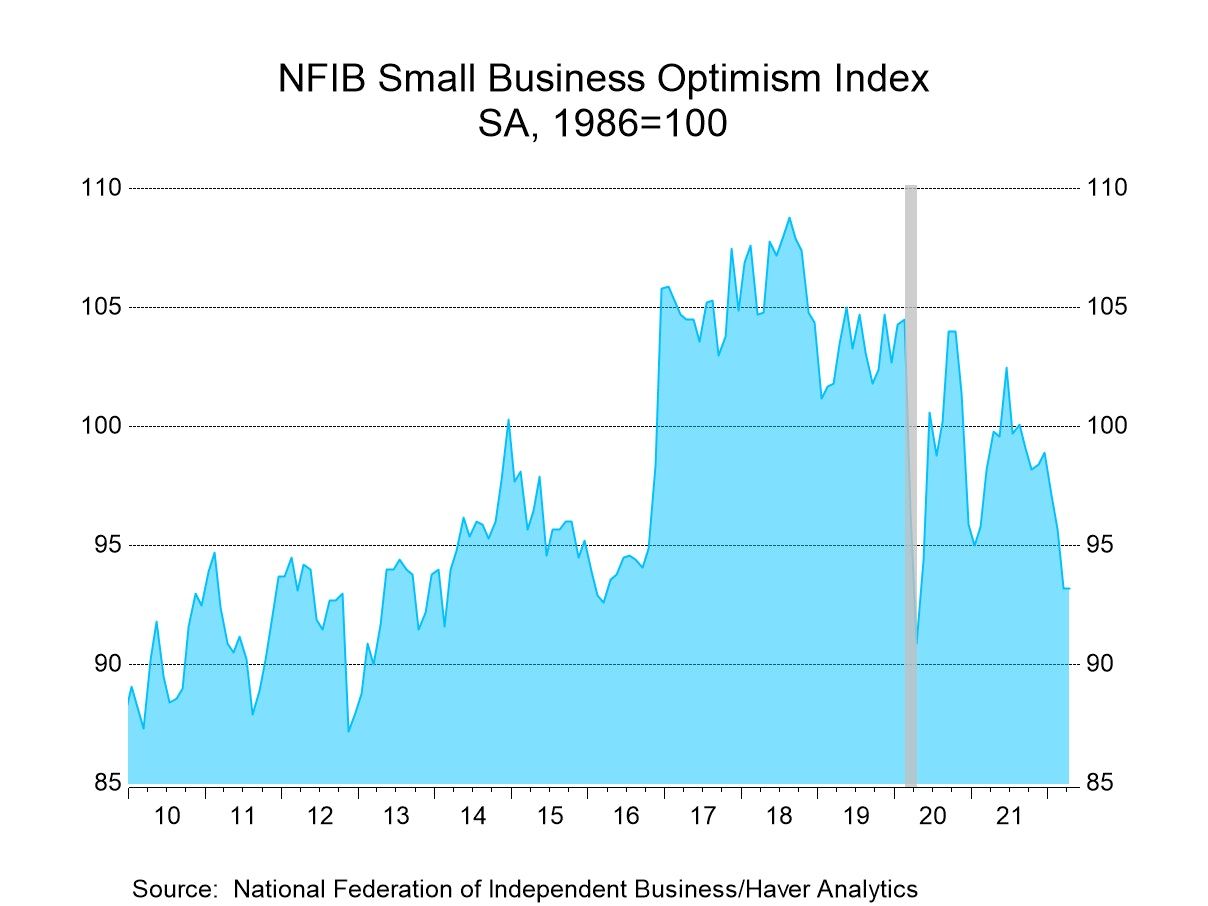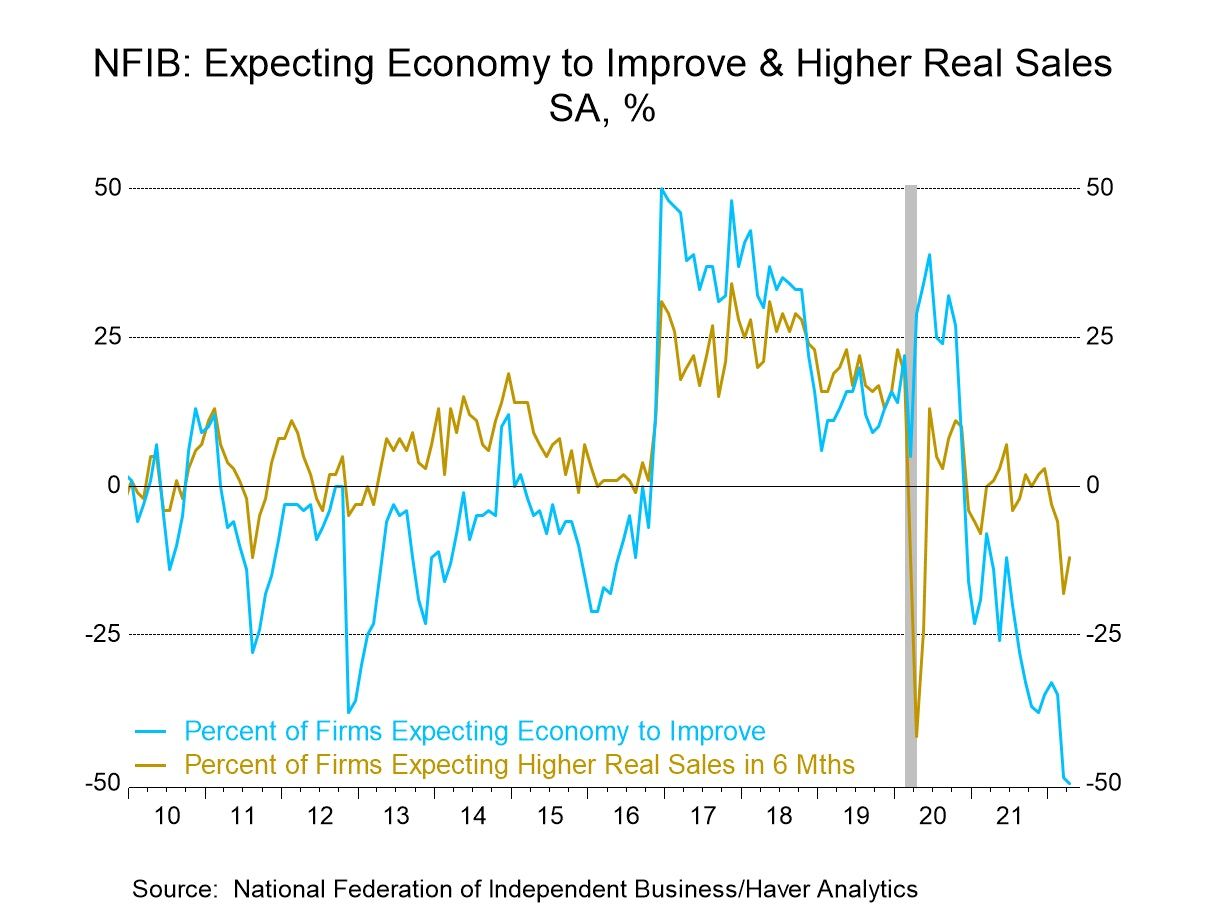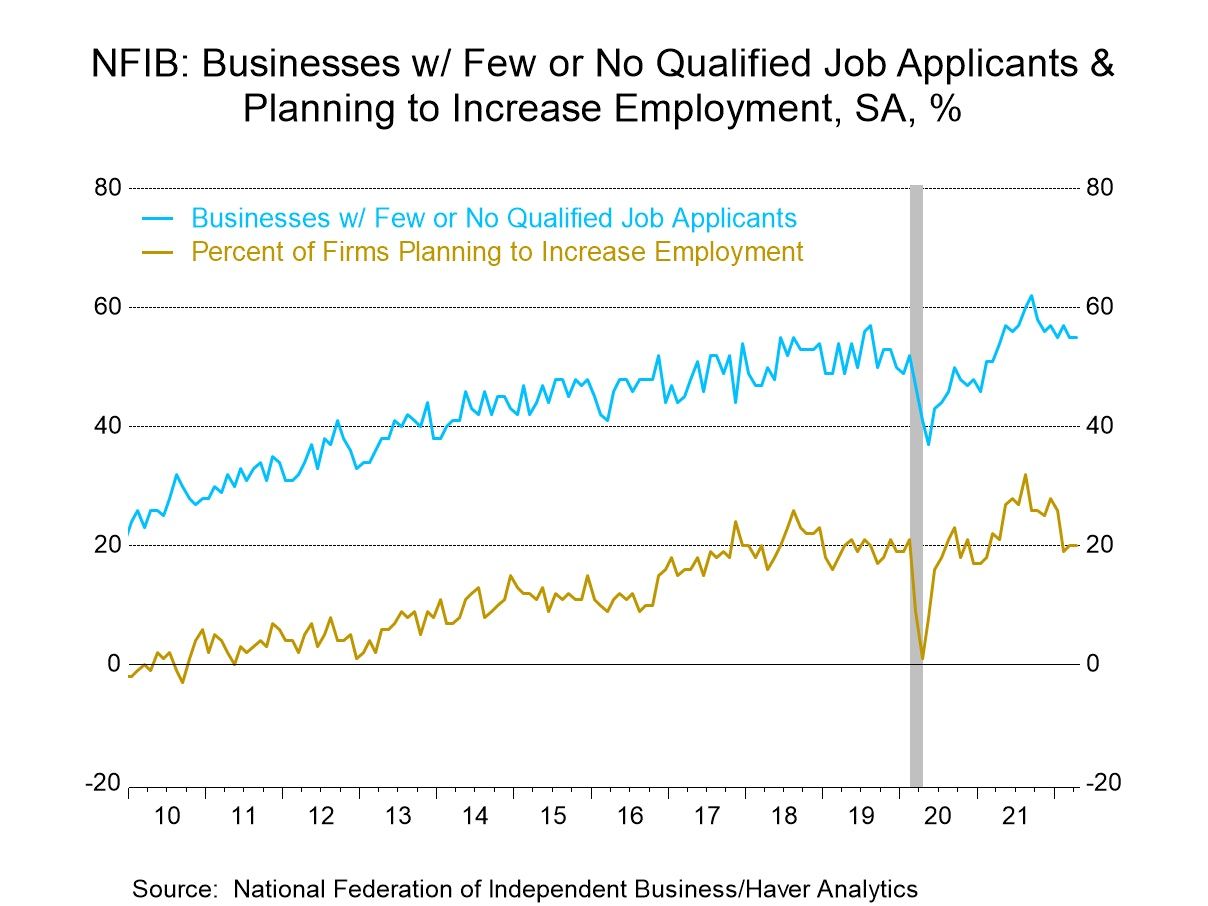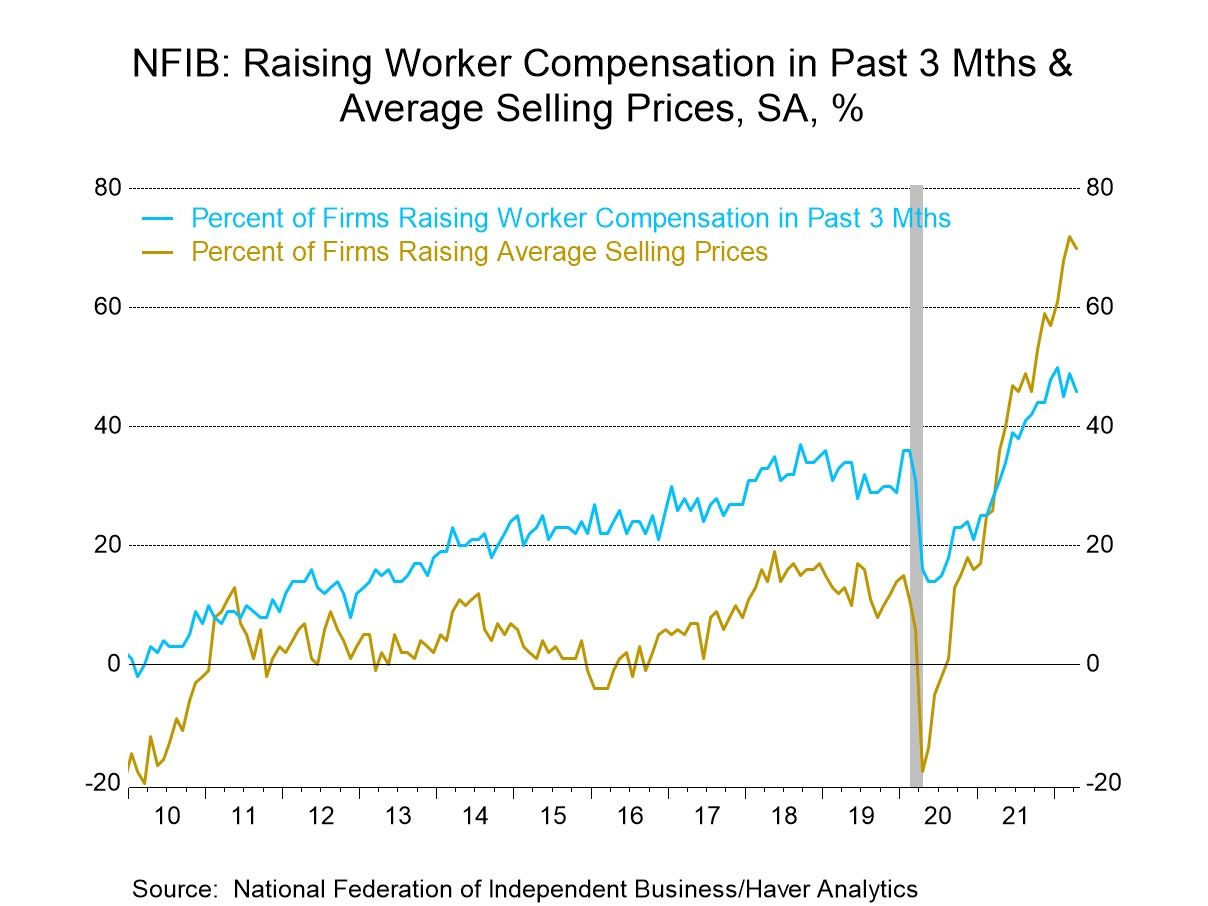U.S. Small Business Optimism Remains Weak
by:Tom Moeller
|in:Economy in Brief
Summary
- Optimism holds at lowest level since April 2020.
- Expectations of better business conditions in next six months fall to another all-time low.
- Pricing power nears record high.


The NFIB Small Business Optimism Index held steady at 93.2 in April following three consecutive monthly declines. In April, five of the index's 10 components declined from March levels, two increased and three held steady. The survey was conducted by the National Federation of Independent Business.
The outlook for business conditions in the next six months deteriorated to another record low of -50% of respondents who expected the economy to improve versus -14% twelve months earlier. Expected real sales improved slightly to a net -12%, the lowest reading since May 2020. Plans to expand the business fell for the fourth consecutive month to a net 4% in April, its lowest reading since May 2020.
The employment outlook remained weak. A steady net 20% planned to increase the number of jobs, which was down from 32% in August of last year. The percentage of firms with few or no qualified job applicants for job openings held steady at 55%, down from 62% last September.
Inflation pressures remained strong as a near-record 70% of respondents were raising average selling prices in April, roughly double the 36% reading twelve months earlier. The percentage planning to raise prices rose eased to 46% from 50% in March yet remained above the 36% twelve months earlier.
Wage inflation also remained strong as a net 46% of respondents raised compensation during the last three months, down slightly from the January peak of 50% but higher than 14% in the spring of 2020. A lessened 27% of firms planned to raise worker compensation versus 32% in December.
Roughly 24 million small businesses exist in the U.S. and they create 80% of all new jobs. The typical NFIB member employs 10 people and reports gross sales of about $500,000 a year. The NFIB figures can be found in Haver's SURVEYS database.


Tom Moeller
AuthorMore in Author Profile »Prior to joining Haver Analytics in 2000, Mr. Moeller worked as the Economist at Chancellor Capital Management from 1985 to 1999. There, he developed comprehensive economic forecasts and interpreted economic data for equity and fixed income portfolio managers. Also at Chancellor, Mr. Moeller worked as an equity analyst and was responsible for researching and rating companies in the economically sensitive automobile and housing industries for investment in Chancellor’s equity portfolio. Prior to joining Chancellor, Mr. Moeller was an Economist at Citibank from 1979 to 1984. He also analyzed pricing behavior in the metals industry for the Council on Wage and Price Stability in Washington, D.C. In 1999, Mr. Moeller received the award for most accurate forecast from the Forecasters' Club of New York. From 1990 to 1992 he was President of the New York Association for Business Economists. Mr. Moeller earned an M.B.A. in Finance from Fordham University, where he graduated in 1987. He holds a Bachelor of Arts in Economics from George Washington University.
More Economy in Brief
 Global| Feb 05 2026
Global| Feb 05 2026Charts of the Week: Balanced Policy, Resilient Data and AI Narratives
by:Andrew Cates






